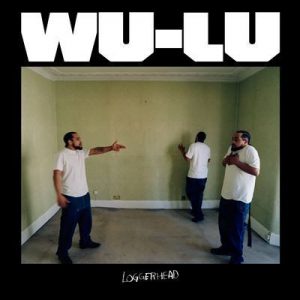Explore blurred music genres
These days there seems to be less of a concern with musicians fitting into one genre. Or fitting in at all, really. As long as a musician can express themselves in a cohesive way, they can dabble in many genres at once. It may limit their radio potential, though, or make it hard for critics and stores to categorize.
But it's 2023: the hyperpop genre is rising and rap verses have replaced guitar solos in country singles. Sometimes when coupling genres the contrast between them is the point. Other times it's a fusion of the artist's influences. These recent albums effortlessly blend soul, rap, punk, jazz and more in distinctive, postmodern ways.
Kelela Raven (CD)
 Kelela ("kuh-LELL-uh") Mizanekristos debuted with a mixtape in 2013, featuring beats from Topeka-native P. Morris. Her first proper album, Take Me Apart, was released on the prestigious UK electronic label Warp Records in 2017 to critical acclaim. So anticipation has built during these last six years for her second album.
Kelela ("kuh-LELL-uh") Mizanekristos debuted with a mixtape in 2013, featuring beats from Topeka-native P. Morris. Her first proper album, Take Me Apart, was released on the prestigious UK electronic label Warp Records in 2017 to critical acclaim. So anticipation has built during these last six years for her second album.Raven is a very different approach. Take Me Apart had a dynamic mix of shorter interludes and songs that brewed for a while, soft ballads and louder bangers. This second album locks into a cooler downtempo groove for its duration, letting its sleek style wash over you like the icy black-and-white cover.
Warp Records was first known for heady electronic music like Aphex Twin and Boards of Canada. Though assuredly an R&B album, Raven is equally electronic without organic instruments except for vocals and the occasional bass guitar. Its reverence for deep, dark Detroit house and Y2K-era chillout mixes feels natural. Kelela's vocals are some of the most underrated in R&B and soul today. They're smooth, strong, self-assured but never showy. Her singing supports the songs themselves, not the reverse as a simple vocal showcase. The cosmopolitan, sensuous, mature style brings to mind Sade on this album. Great to unwind to after a long day, it doesn't demand close attention but rewards repeat listens.
Wu-Lu LOGGERHEAD (CD)
 Wu-Lu is the stage name of Miles Romans-Hopcraft, a Londoner who is also making his debut on UK's Warp Records. He's been honing his musical skills for years, early on as guest in his father's reggae fusion band Soothsayers. On his first album, which he describes as a "blueprint" of sorts for his musical outlook, Wu-Lu fuses the slow-and-low stew of Jamaican dub with politics fueled rap, poetic repetition and British punk thrash. He makes these clashes work and flow together.
Wu-Lu is the stage name of Miles Romans-Hopcraft, a Londoner who is also making his debut on UK's Warp Records. He's been honing his musical skills for years, early on as guest in his father's reggae fusion band Soothsayers. On his first album, which he describes as a "blueprint" of sorts for his musical outlook, Wu-Lu fuses the slow-and-low stew of Jamaican dub with politics fueled rap, poetic repetition and British punk thrash. He makes these clashes work and flow together.His breakout hit "South" recalls how he used to live in South London but he now recognizes little of it due to gentrification and rising rents. It starts with a nervous acoustic strumming and steady drumming before erupting in death metal screams of frustration. On the very next song, he and guests lament "I don't want to see your mental health go to waste" in a more pensive tone accompanied by orchestral strings and eventually distorted electric guitar.
Sometimes the album feels like '90s British trip-hop group Massive Attack, forbearers in genre-melding. But then an alt-rock guitar sounding like early Radiohead leads a song like "Times" with Romans-Hopcraft rapping over the top. While this album wears its influences on its sleeve, it's definitely of the moment and forward-looking.
Moor Mother Jazz Codes (CD)
 Camae Ayewa, who performs as Moor Mother, is half of the Philadelphia-based art and literary group Black Quantum Futurism. The collective is name checked in the album's first song and their ethos shapes it, involving race, science, gender, sexuality, economics and society. Like their name implies there's a focus on afro-futurism in Jazz Codes. Not only in a literary or sci-fi sense, but in fusing the future with the historical past. The album weaves its way through not only jazz history, but blues, ragtime, soul and rap. References to John Coltrane, Mary Lou Williams, Woody Shaw, Billie Holiday and OutKast permeate the album like shorthand. It even deconstructs the ways genre has been used to ostracize Black music through the years.
Camae Ayewa, who performs as Moor Mother, is half of the Philadelphia-based art and literary group Black Quantum Futurism. The collective is name checked in the album's first song and their ethos shapes it, involving race, science, gender, sexuality, economics and society. Like their name implies there's a focus on afro-futurism in Jazz Codes. Not only in a literary or sci-fi sense, but in fusing the future with the historical past. The album weaves its way through not only jazz history, but blues, ragtime, soul and rap. References to John Coltrane, Mary Lou Williams, Woody Shaw, Billie Holiday and OutKast permeate the album like shorthand. It even deconstructs the ways genre has been used to ostracize Black music through the years.The music itself is a brew of its influences, but largely stays in the mode of jazz instrumentation, electronic fills or flourishes, and Ayewa's resonant voice alternating between rap and poetic delivery. Harp in the style of Dorothy Ashby glistens like stars in the mix. Trumpet ripples ahead before fading into the background. Piano loops bleed into warm Fender Rhodes organ, and beat sequencers form a musical patchwork.
The message and delivery appropriately heat up, sometimes simmering with anger and tragedy. But the album is never unapproachable. On the contrary, its invitingly languid flow shifts us smoothly through its phases at roughly 2 minutes per song. It culminates in a spoken word reading by professor Thomas Stanley on the very concept of jazz.
Final thoughts on fusing genres
Like all seismic change in media, there are pros and cons to the streaming era in music. One of the most fascinating aspects is when all music is dropped in the same place, it brushes up against each other. Both listeners and musicians start to look past or tear down the barriers between genres. When shuffle mode mashes up our own tastes into eclectic mixes, it makes perfect sense that artists feel little need to stay pigeonholed. Try one of these artists who have fused their favorite styles and see if you find a new genre combo that just works.















